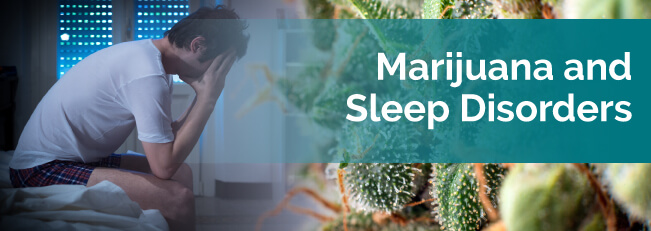
There are over 100 distinct sleep disorders that affect 50-70 million Americans, according to the American Sleep Association (ASA). Sleep disorder symptoms are many and varied. They can involve movement, such as teeth grinding, sleepwalking and restless legs. They can involve trouble falling asleep, staying asleep or waking up from sleep. Sleep disorders may present as paralysis upon waking or falling asleep coupled with hallucinations.
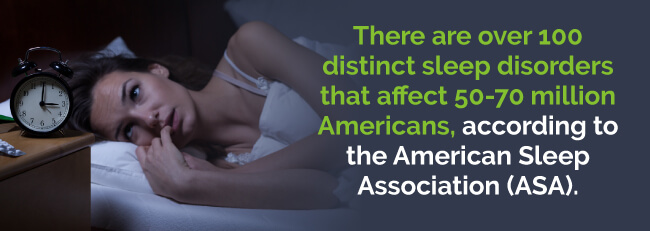
Because there is such a wide range of sleep disorders and symptoms, marijuana may not be categorized as potential treatment for sleep disorders in general, though it may help with certain sleep disorders and specific symptoms caused by them. Medical marijuana is used in treatment of some sleep disorder symptoms while research is insubstantial for medical marijuana use for other symptoms.
In order to treat sleep disorders with medical marijuana, it is necessary to isolate which symptoms pot can alleviate. Every sleep disorder is different and has different underlying causes, if it has any underlying causes at all.
Research indicates medical marijuana for sleep disorders can reduce stress-related symptoms. An outpatient study done at the Canadian Forces Health Services Operational Trauma and Stress Support Centre in Ottawa indicated that marijuana could alleviate stress-related nightmares in individuals with PTSD. This suggests that medical marijuana can help with other stress-related sleep disorders, though more research is necessary.
Using medical cannabis for sleep disorders can also relieve mental health symptoms that interfere with sleep and cause nightmares. Medical marijuana can help patients with depression, PTSD and anxiety experience fewer symptoms that result in lower sleep quality and bad dreams. When anxiety medicine that causes nightmares is replaced with an effective medical marijuana treatment, the patient can experience reduced anxiety without the side effect.
Find A Doctor Find A Dispensary
As far back as the 19th century, marijuana has been used to treat insomnia in the U.S., though its use for insomnia dates much further back in world history. Of course, with marijuana prohibition and the controversy surrounding medical marijuana, this use is not widespread in the medical field today. Nonetheless, one of the side effects of marijuana is sleepiness. This suggests that it could help insomniacs fall asleep or fall back to sleep if they wake up too early. Its usefulness in this area is well known and has been for some time.
Patients who take medical marijuana to relieve their insomnia often agree it works. Sedatives can work “too well” and make you feel groggy throughout the day, not to mention their addictive qualities. Many marijuana patients state it actually works better than sedatives and makes them feel great the next day.
Due to the federal illegality of marijuana, it can be hard to find clinical trials on marijuana for rarer and/or non-lethal conditions like sleep apnea. As far as we know, marijuana doesn’t have much of a direct effect for sleep apnea. However, it can improve the quality of sleep for a patient while they try to resolve other symptoms.
As far as treatment for narcolepsy, somnambulism (sleepwalking) and restless leg syndrome, there isn’t enough research to say whether marijuana can be helpful to a large degree for the symptoms of these conditions. The effects of marijuana typically do not last eight hours, which is roughly the amount of time a person should be asleep.
Unless medical marijuana is taken in a slow release pill form, it is unlikely to help with these symptoms throughout the night, even if it was shown to be able to help while in the system. Therefore, self-medication with marijuana for these symptoms is likely to be futile. If medical marijuana is to be used for these conditions, it should be done so under the supervision of a medical professional so the efficacy of the treatment can be gauged.
Marijuana is one of the oldest known treatments for sleep disorders. As such, there is evidence of its benefits dating back to before the widespread marijuana prohibition. Some studies for medical marijuana use and pain have shown that sufferers who are using medical marijuana to treat their pain have also reported better quality sleep. Therefore, it should be noted that sleep disorders with underlying causes such as chronic pain or illness might be treated with medical marijuana, particularly if medical marijuana has shown promising results on the underlying condition.
Clinical research suggests that the THC in marijuana improves sleep. Studies back the claim that THC can help patients sleep longer, reduce the time it takes to fall asleep and promote deeper sleep.
But THC isn’t the only star of the show — the other cannabinoid in marijuana, CBD, has sleep benefits, too. Since CBD makes you alert instead of sleepy, it can help you manage the drowsiness sleep deprivation causes during the day. Some studies have found CBD might help sleep, but most suggest it’s better suited for waking you up.
Some research cautions patients to be careful when medicating, though. Certain studies found that both types of cannabinoids in marijuana inhibit your REM sleep, one of the forms of deep sleep. However, like any other research on medical marijuana, there just isn’t enough information out there to confirm anything just yet.
One of the most important kinds of medical cannabis research is the research you conduct before using it. Before you pursue any kind of medical marijuana treatment, make sure to check reputable sources covering the symptoms you want to relieve. The studies themselves are your best bet, and you can also look at articles from all viewpoints that review marijuana’s effects.
When in doubt whether research on marijuana is conclusive, ask an informed doctor or a reliable dispensary staff member. Marijuana knowledge is a journey best taken with people you trust.
Not all varieties of medical marijuana are the same. Depending on the strain, marijuana can make you feel different ways.
There are three kinds of marijuana strains — indica, sativa and hybrid. While indica strains promote sleepiness and calmness, sativa strains promote alertness and energy. Hybrid strains involve crossbreeding of multiple strains, so their effects vary.
In addition, each individual strain has its own benefits and drawbacks. When recommending marijuana for treatment, we generally offer a list of strains. Simply endorsing sativa, hybrid or indica strains doesn’t reflect the complexity of choosing the right medicine for you.
Marijuana strains known for promoting sleepiness include:
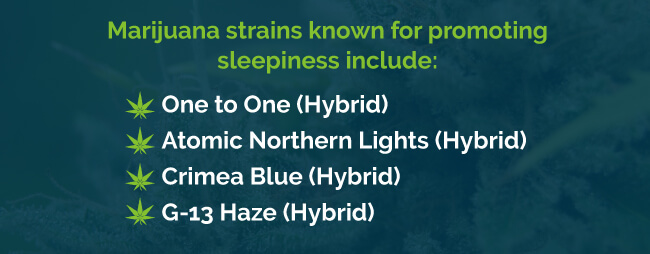
These strains counteract the fatigue sleep disorder patients experience during the day:
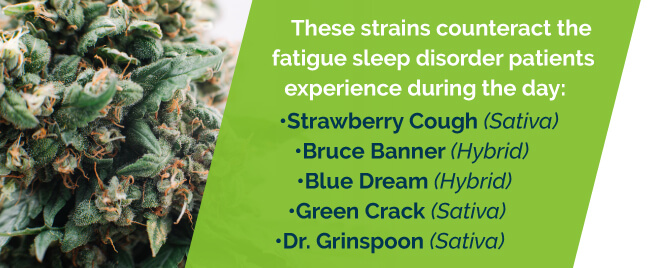
While not a direct symptom of sleep disorders, anxiety and stress can cause them. Strains that help calm you down are:
Many of these strains help with depression and chronic pain, which can also interfere with sleeping.
If you can’t find any of the strains on this list at your local dispensary, don’t worry — you can still make an informed decision if you know what to look for. As we discussed earlier, strains with higher THC than CBD work best as sleep aids, and high-CBD strains make you feel more awake. Most dispensaries provide information about the chemical content of every product so you can choose one that’s right for you.
Every dispensary also staffs budtenders who guide you through your shopping experience. You can tell them what outcome you want from your medication so they can lend you a hand.
The typical stereotype of using marijuana is smoking it with a blunt or pipe. But you can consume marijuana in many other ways that garner unique results. Just like picking a strain, picking a consumption method influences your medication’s effectiveness. You have four main choices:
The right consumption choice for you will differ from another patients’. Every disease manifests differently for every person, and each patient has a personal preference. The only way to truly know what works best for you is consulting with experts and trying out different methods.
Although medical marijuana can supplement standard medicine to counter the side effects, it can have side effects itself. Take your first doses carefully and report any major side effects to your doctor. Typical marijuana side effects include:
If you don’t know whether medical marijuana is legal in your state, we have a list of legal states and list of non-legal states. Due to the U.S.’s constantly changing outlook on marijuana, you might want to check back often to see what the situation is in your state.
Before visiting a doctor or sending in an application, do your research. We have a wide variety of resources that you’re welcome to use by navigating the menu at the top of the page. You can learn about legal issues, current events, the application process and related health conditions.
While every state has its own laws regarding medical marijuana, legal states often have similar procedures.
Many states require you to visit a doctor so they can testify you have an eligible condition. In some states, you’ll need to visit a specially trained doctor, and in others, you can make an appointment with any doctor. The doctor will provide a certification or recommendation that lets you sign up with the state program or begin buying medical marijuana.
Some states require you to register with a registry, and others that allow recreational use don’t. States that don’t require registration often offer voluntary registration for patients who want reduced taxes.
Once your paperwork is approved, you can go to a dispensary to buy medical marijuana. Every dispensary has knowledgeable staff who can help you decide what to buy. Regardless of your state’s rules, you need to find the right doctor and dispensary for you.
Get relief from your sleep disorder today, and see if Marijuana Doctors can help. We provide a doctor directory and dispensary database divided by state to give you current information.
Find A Doctor Find A Dispensary
The causes of sleep disorders vary by case — there is no standalone reason for sleep problems. Some of the most common sleep disorders include:
No matter the variety of sleep disorder, having one can seriously interfere with your life. Sleep deprivation can make it difficult to focus during the day, sometimes to the extent that it puts you in danger. For instance, driving while tired causes 1,550 deaths and 40,000 injuries every year, according to the ASA.
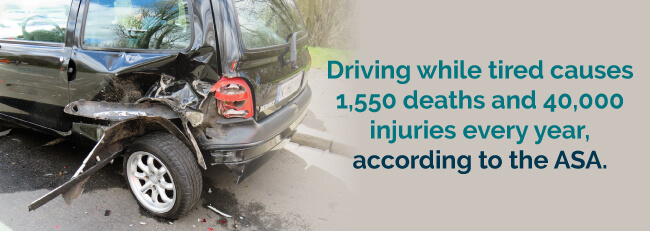
As you can see, sleep disorders create serious problems when unaddressed. Sleep is an important influence on our energy levels and overall well-being, so sleep issues are no joke. What are doctors currently doing to help patients sleep?
The treatment method a doctor pursues for your sleep disorder depends on the nature of the disorder. Since all sorts of health problems can affect your sleep, the doctor might try to treat the underlying condition or address your sleep directly.
Doctors often recommend lifestyle changes like better sleep hygiene for patients dealing with insomnia. Switching up your sleep habits can reduce or completely alleviate your inability to sleep. Some patients receive sedatives for short-term treatment, but they’re a temporary solution you can get addicted to.
Besides the good old CPAP machine, which helps people breath while they sleep, doctors can recommend weight loss for overweight and obese sleep apnea patients. Being overweight can cause the obstruction in the patient’s airways, so in some cases, losing weight solves the issue. However, using a CPAP machine or losing weight isn’t feasible for everyone.
If you have restless leg syndrome, your doctor might advise you to make certain lifestyle changes or take a prescription drug. Making adjustments like increasing your vitamin intake, eating a healthier diet or changing unhealthy habits can help relieve your symptoms. Restless leg syndrome-specific drugs can also do the trick, but they can give you side effects such as drowsiness, dizziness and nausea.
The proper treatment for reducing your nightmares’ frequency depends on the cause of the nightmares. When they result from a mental health problem like PTSD, cognitive behavior therapy can help. In general, alleviating the underlying cause of your nightmares will assist you the most.
Only you and your doctor will know the best route to take. We all have different body chemistries and health issues that change how we react to different remedies.


Please allow us to access your location to find local dispensaries.
VIEW ALL DISPENSARIES ➔